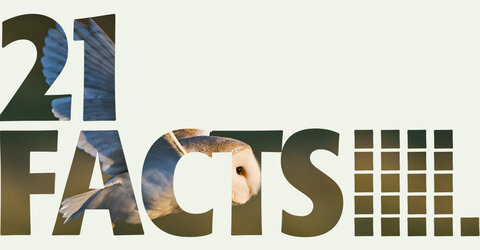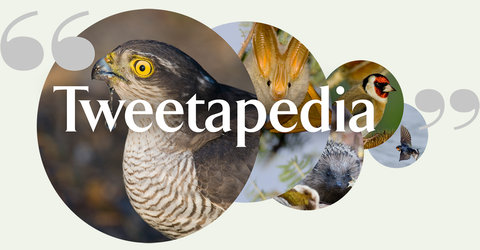Living with Birds Tweetapedia

How many syllables are there in a skylark’s song? Which bird used to be known as the ‘thistle finch’? And how long does it take house martins to build their mud nests? We’ve got all the answers – and hundreds more – in our absorbing collection of bird-focused facts and figures.

From bird health to hedgehogs: get to know more about Britain’s garden birds, mammals and invertebrates with our growing library of articles. Alongside practical tips and know-how, you’ll discover birding facts and wild musings. Take a fresh look at your garden visitors – there’s a whole world of wildlife right outside your window.
Why are robins so friendly? With Nik Mitchell video
Robins are intelligent birds known for their inquisitive nature. So why do Robins follow you around the garden when you are digging?
More >'The Sky Dance' by David Tipling
The first starlings don't arrive as a spectacle. They arrive in loose groups, skimming low over the winter landscape.
More >A confusion of wagtails - distinguishing an elegant trio
Of all of our native birds, none are as misleadingly named as the wagtails. Yes, they do all wag their tails but that’s the only helpful bit of the name. Take the grey wagtail for example.
More >Badgers befriended
There was a time when badgers were regarded as rare garden visitors. But with the doubling of Britain’s badger population over the past two decades, that’s no longer the case.
More >Bats demystified
Bats are our mystery mammals. Their black silhouettes flickering across a sunset are familiar enough to anyone living in the countryside, but naming the species is a trick beyond most of us.
More >Bats in your garden
Count yourself lucky if you see bats in your garden for these mysterious and much maligned mammals have declined alarmingly in our countryside in recent years.
More >
Money-off Vouchers
Our regular money-off vouchers and special offers are always warmly received.
Join our email list and look out for yours.
